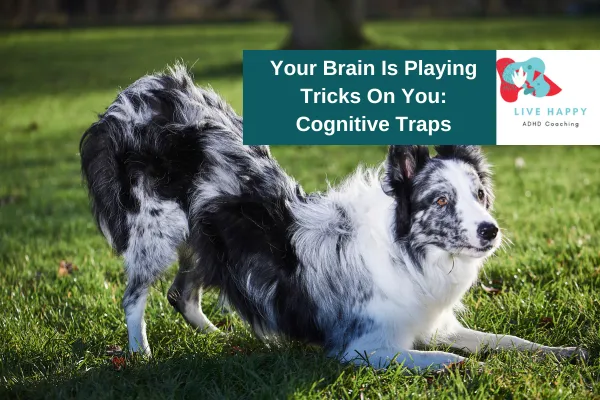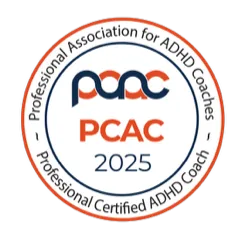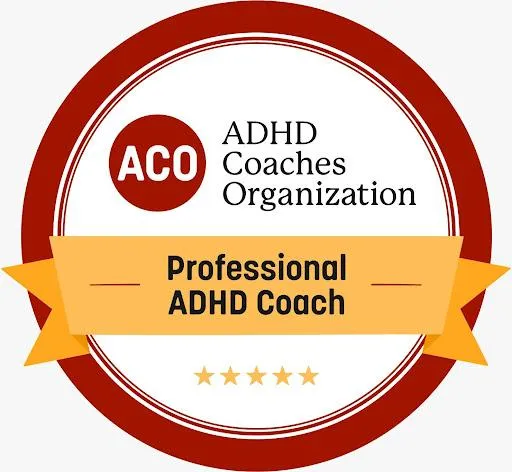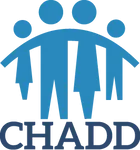Live Happy ADHD Coaching
Welcome.
Are you ready for a change but keep hitting roadblocks?
I can help you move from survival mode to thriving and reconnecting to the joy of life. I help my clients stay on track, create calm, and bring out the best in themselves. I invite you to learn how to enhance the way your unique ADHD brain works, instead of working against it.
Meet your Coach

I used to struggle with exactly the same thing.
Dorsey McFadden currently lives in Richmond with her husband and pets. She earned a double BA degree from the University of North Carolina at Chapel Hill in Political Science & Communications and International Security Studies & Rhetoric.
In her previous life, Dorsey worked in digital marketing for over 20 years. Now she’s building a career as an ADHD coach, educator, and advocate.
She also cofounded FlexYourADHD.com as a platform with a significant community of adults eager to learn about their ADHD.
As the founder and coach of Live Happy ADHD Coaching, Dorsey is passionate about coaching adults living with ADHD and parents of children with ADHD to help them live happy and healthy lives.
Together, she works with her clients to develop techniques and approaches to better understand how to support themselves and their children.
Dorsey aims to empower those with ADHD to work with their unique brain, not against it.

Meet your Coach
I used to struggle with exactly the same thing.
Dorsey McFadden is a certified ADHD coach, educator, and advocate through training from the ADD Coach Academy (ADDCA), holding credentials from both ADDCA and the Professional Association of ADHD Coaches (PAAC). Based in Richmond, she lives with her husband and pets. With over 20 years of experience in digital marketing, she brings a wealth of strategic insight to her coaching practice. Dorsey holds a double BA from the University of North Carolina at Chapel Hill in Political Science & Communications and International Security Studies & Rhetoric.
As the founder of Live Happy ADHD Coaching and FlexYourADHD.com, Dorsey is passionate about helping adults with ADHD and parents of children with ADHD build happier, more fulfilling lives. She partners with her clients to create personalized strategies that harness the strengths of the ADHD brain, focusing on empowerment, self-understanding, and practical support systems.
Dorsey's mission is simple: to help people stop fighting against their ADHD and start thriving with it.
While there's no magic solution in life, the supportive, practical, concrete, and collaborative process of coaching can help to bridge the gap between where you are right now and where you want to be.
Do any of these sound familiar?

difficulty with planning and prioritizing
feeling unfulfilled and unsuccessful
impaired communication or social skills
trouble getting started/lack of initiative
difficulty maintaining focus
poor self-care (exercising, getting to bed, etc.)
difficulty explaining their ADHD to others
getting easily distracted and overwhelmed
challenges with working memory
poor time and energy management
lack of organizational skills
trouble harnessing motivation and interest
impulsivity/lack of inhibition
procrastination (sometimes extreme and high stakes)
poor communication skills
difficulty with planning and prioritizing
feeling unfulfilled and unsuccessful
impaired communication or social skills
trouble getting started/lack of initiative
difficulty maintaining focus
poor self-care (exercising, getting to bed, etc.)
difficulty explaining their ADHD to others
getting easily distracted and overwhelmed
challenges with working memory
poor time and energy management
lack of organizational skills
trouble harnessing motivation and interest
impulsivity/lack of inhibition
procrastination (sometimes extreme and high stakes)
poor communication skills

Testimonials
What Does Success Look Like?

That depends on the client.
For some it will look like completion of a project while, for others, it may be development of self compassion and self
awareness which enriches all areas of their life.
What Is Coaching?


Coaching is the facilitation of growth and change. A coaching partnership helps close the gap between who you are, what's important to you, and what you're doing. so that you can lead a more satisfying and effective life. Coaches support our client's understanding of their ADHD brain and its related challenges. As well as how it impacts your personal and professional life so that you can utilize practical, realistic strategies to shift from chaos to calm.
What Does Success Look Like?
That depends on the client.
For some it will look like completion of a project while, for others, it may be development of self compassion and self
awareness which enriches all areas of their life.


What Is Coaching?
Coaching is the facilitation of growth and change. A coaching partnership helps close the gap between who you are, what's important to you, and what you're doing. so that you can lead a more satisfying and effective life. Coaches support our client's understanding of their ADHD brain and its related challenges. As well as how it impacts your personal and professional life so that you can utilize practical, realistic strategies to shift from chaos to calm.
More Topics to explore
Something for every reader

Your Brain Is Playing Tricks On You: 13 Cognitive Traps
This article will be about cognitive distortions, or traps and how they can influence your thinking. These are NOT unique to ADHD yet I find I’ve been guilty of all of them at times. We’re only human after all.
Cognitive behavioral therapy or CBT is one of the highly suggested treatments for ADHD. In this type of therapy, a psychologist helps a person change their behavior by exploring their patterns of thought. When we can identify negative thinking patterns, we can challenge them, uncovering where they came from and why we still believe them. Slowly and surely, this self analysis helps to reduce negative thinking, replacing it with more rational thinking.
Have you ever thought to yourself “That person does not like me,” about someone you’ve had little interaction with? If so, perhaps you’ve been caught in a cognitive trap and didn’t even know it. These 13 traps hijack your brain. And you won’t even realize it unless you’re aware of these traps.
Cognitive traps are the way our brain convinces us that something is real when it’s not. Typically these false thoughts reinforce negative thinking and pessimism. By simply becoming aware of and acknowledging these patterns of thinking, you begin the process of changing your mindset.
What’s a fact and what’s a feeling?
Before we go into these traps, we need to be on the same page about what is a fact, what is a feeling or emotion, and what is a thought. Understanding their differences is essential to exploring your own thinking patterns and mindset.
Example: Suzy went to a party, where Rob bumped into the table and she spilled a drink all over herself. Everyone started laughing and she felt stupid. She left crying and now hates Rob because she thinks he did it on purpose as a joke.
Facts:
There was a party
Suzy had a drink
Rob bumped into the table
People laughed
Suzy left
Feelings or emotions:
Suzy felt stupid
Suzy hates Rob
Now hold on to this example and we’ll explore it in more detail after this list.
Cognitive Traps
Mind Reading – We believe that we know what someone is thinking, typically assuming they’re thinking the worst of us.
Fortune Telling – Similarly fortune telling is predicting that things will turn out bad. You aren’t psychic and can’t tell the future. Sorry. This is all guess work.<
Polarized or Black and White Thinking – This is where you look at a situation in terms of extremes (black and white, good or bad). In this trap, if you don’t achieve what you set out to do, you view yourself as a failure.
Over-Generalization – Based on one or two incidences, you come to a generalization of an overall pattern. When something bad happens, and you assume that you’re always doomed to repeat the same mistakes, you’ve fallen into the overgeneralization trap.
Filtering – In this trap you stop seeing anything but the negative aspects of a situation and ignore the positive.
Catastrophizing – In this trap, you imagine the worst that could possibly happen, thus stopping yourself from ever taking action.. In reality, the worst case scenarios hardly ever happen. A form of Catastrophizing, Magnifying happens when a person magnifies the importance of one event in their life – letting that define them.
Conversely, with Minimizing (aka disqualifying the positive) you shrink the importance and significance of your positive qualities and contributions.Labeling and Mislabeling – Attaching a negative label to yourself or someone else, based on a single mistake, is labeling and it’s an extreme form of generalization.
Personalization – In this trap you think everything, every action, is a direct reaction to you. Many times, other people’s actions or reactions are a reflection of them, and may have nothing to do with you.
Should Statements – We all have beliefs but when those beliefs become personal rules on how you or others should live – this is a cognitive trap. These are only your beliefs.
Emotional Reasoning – Emotional reasoning is taking your emotions or feelings as fact. Emotional reasoning is a powerful way to justify negative thinking, regardless of the facts.
Heaven’s Reward Fallacy or Fallacy of Fairness – This trap manifests as a belief that one’s struggles will result in a just reward in the end. But life isn’t fair – thinking it should be is definitely a cognitive trap.
Always Being Right – People who fall into this trap often put others on trial to prove their own options and actions are correct and justified. If being right is more important than relationships – you’ve fallen into this trap.
Control Fallacies (aka Magical thinking) – These go two ways. With external control fallacy, we have no control over our own lives–we are victims of fate. Internal control fallacy leads us to believe we are responsible for the emotions and feels of everyone around us. Both are extremes and both lead to negative thinking.
Let’s get back to Suzy and look at her thoughts again.
Rob did it on purpose
People laughed at me
Using the list above, we can see that Suzy has fallen for a few of them. Suzy can’t know if Rob did it on purpose or not. She suspects he did but what if he didn’t? She’s not a mind reader. She also thinks people laughed at her. Again she can’t really know what aspect of the situation they were laughing at. She also can’t assume they were laughing at her–by doing so, she’s personalizing the event.
Once you’re aware of these traps you’ll start to notice and identify them in your own thinking. Get curious and consider where a thought originates from. Was it a parent’s comment, something you learned to believe as a child, or did it get into your thinking some other way? After you’re able to label them you can begin to gently refute them and change your mindset. Replacing those negative thought patterns with more balanced rational thinking can only improve your life.
So how can you challenge these cognitive traps? Ask yourself a few questions and see where they take you.
Is this thought a fact?
What evidence do I have that this thought is a fact?
Is this thought helpful?
Are there other ways I can think about this situation?
Am I blaming myself?
Is it in my control?
What or who else contributed to the situation?
Am I making assumptions?
Am I assuming the worst?
Am I holding myself to an impossibly high standard?
Are there exceptions to these absolutely?
Am I making this personal?
If you want to put more work into this I suggest checking out this worksheet from Therapist Aid. This is the type of critical thinking work you’d typically do with your Psychologist/Therapist. Using it you’ll examine your negative thoughts, making good decisions about which to challenge and which to embrace.
So tell us below, which of these do you struggle with the most?
How Does Coaching Work And How Does It Help You?
Coaching sessions create space away from day to day demands for a dialogue between the coach and client. The client determines the long-term direction of coaching and is responsible for bringing a topic/issue/question to each session. Together, the coach and client explore who the client is, who they think they are, and who they want to be in order to clarify desired outcomes and actions to further the client’s agenda.
As a coach, I will ensure we make the most of your time. My role is to be your sounding board, mirror, and champion your efforts. I will provide models and structure to help you organize your thoughts, beliefs, and values. I will help you to bring details into focus to reach a deeper understanding and appreciation of yourself. I will hold you accountable for your decisions and actions and challenge you to be compassionate with yourself while setting realistic and achievable goals.
However, I will never tell you what to do. Coaching sessions offer an opportunity for you to learn something new about yourself, a different way of thinking about a situation, or uncover a belief that was limiting the options you thought were available to you. The “work” to apply this learning toward changing your life continues beyond the coaching session.
Welcoming clients of all races, cultures, identities and orientation
Disclaimer: Coaching is not to be used as a substitute for professional advice by legal, medical, financial, business, spiritual or other qualified professionals. We encourage our clients to seek independent professional guidance for legal, medical, financial, business, spiritual, or other matters. With Coaching, all decisions in these areas are exclusively the responsibility of the client who acknowledges that decisions and actions as a result of coaching are their sole responsibility.
Example Topics for Coaching
ADHD Life skills & Executive Functioning
Relationship Skills
Friendship and Support System
Parenting Children with ADHD
Organizing Skills
Addiction Dangers
Emotional Regulation
Mindset Improvement
Work/Life Balance
Communication Skills
Self Awareness
Self Compassion & Mindfulness
Study Skills
Self Care Skills
Time Management
Task Management
Advocating Skills
Routines and Systems
Healthy Boundaries
Managing your life
Planning & prioritizing
Putting plans into action, task initiation
Goal-directed persistence
Taking actions that align with your physical & emotional needs
Learning new strategies to manage executive functioning
Navigating neurodivergent relationships
Self-regulation & interoceptive-awareness
Emotional impulsivity
Communication strategies
Physical health and wellness
ADHD Coaching & Consulting by Dorsey McFadden
Located in Richmond, VA
Accepting clients Worldwide






Facebook
Instagram
LinkedIn